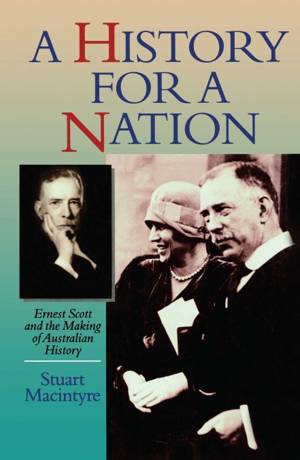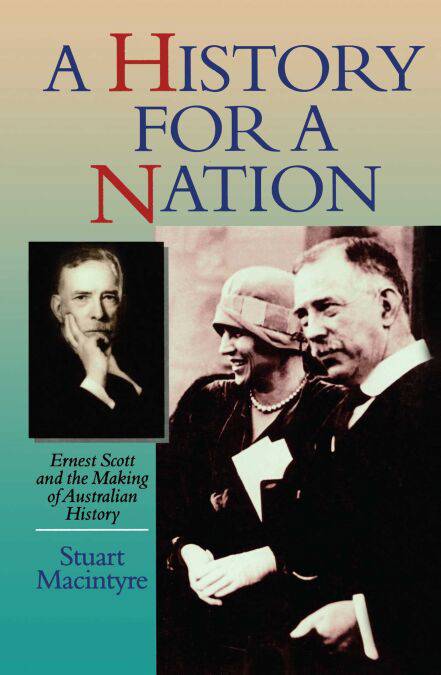
Door een staking bij bpost kan je online bestelling op dit moment iets langer onderweg zijn dan voorzien. Dringend iets nodig? Onze winkels ontvangen jou met open armen!
- Afhalen na 1 uur in een winkel met voorraad
- Gratis thuislevering in België vanaf € 30
- Ruim aanbod met 7 miljoen producten
Door een staking bij bpost kan je online bestelling op dit moment iets langer onderweg zijn dan voorzien. Dringend iets nodig? Onze winkels ontvangen jou met open armen!
- Afhalen na 1 uur in een winkel met voorraad
- Gratis thuislevering in België vanaf € 30
- Ruim aanbod met 7 miljoen producten
Zoeken
History For A Nation E-BOOK
Ernest Scott and the Making of Australian History
Stuart Macintyre
E-book | Engels
€ 11,30
+ 11 punten
Uitvoering
Omschrijving
There is a common belief that Australia acquired history only when it grew up and threw off its colonial origins after the Second World War. Yet earlier generations of Australians created their own histories to express their sense of who they were and what they might be. This book reveals that the quest for an Australian past found its way into our universities and schools from the early years of the Commonwealth.
Ernest Scott was the most prolific teacher and writer of history in inter-war Australia. A self-taught, degreeless professor, he laid the foundations of a historical profession in this country and wrote the textbook that taught generations of schoolchildren the meaning of Australian history. An Englishman and an imperialist active in public affairs, he trained Australians to understand their colonial past as a guide to nationhood.
At the time when Australians debate their nationhood, Asianisation and the republic, A History for a Nation recalls a lost culture of urgent contemporary significance.
Ernest Scott was the most prolific teacher and writer of history in inter-war Australia. A self-taught, degreeless professor, he laid the foundations of a historical profession in this country and wrote the textbook that taught generations of schoolchildren the meaning of Australian history. An Englishman and an imperialist active in public affairs, he trained Australians to understand their colonial past as a guide to nationhood.
At the time when Australians debate their nationhood, Asianisation and the republic, A History for a Nation recalls a lost culture of urgent contemporary significance.
Specificaties
Betrokkenen
- Auteur(s):
- Uitgeverij:
Inhoud
- Aantal bladzijden:
- 264
- Taal:
- Engels
Eigenschappen
- Productcode (EAN):
- 9780522865561
- Verschijningsdatum:
- 17/10/2016
- Uitvoering:
- E-book
- Beveiligd met:
- Adobe DRM
- Formaat:
- ePub

Alleen bij Standaard Boekhandel
+ 11 punten op je klantenkaart van Standaard Boekhandel
Beoordelingen
We publiceren alleen reviews die voldoen aan de voorwaarden voor reviews. Bekijk onze voorwaarden voor reviews.











